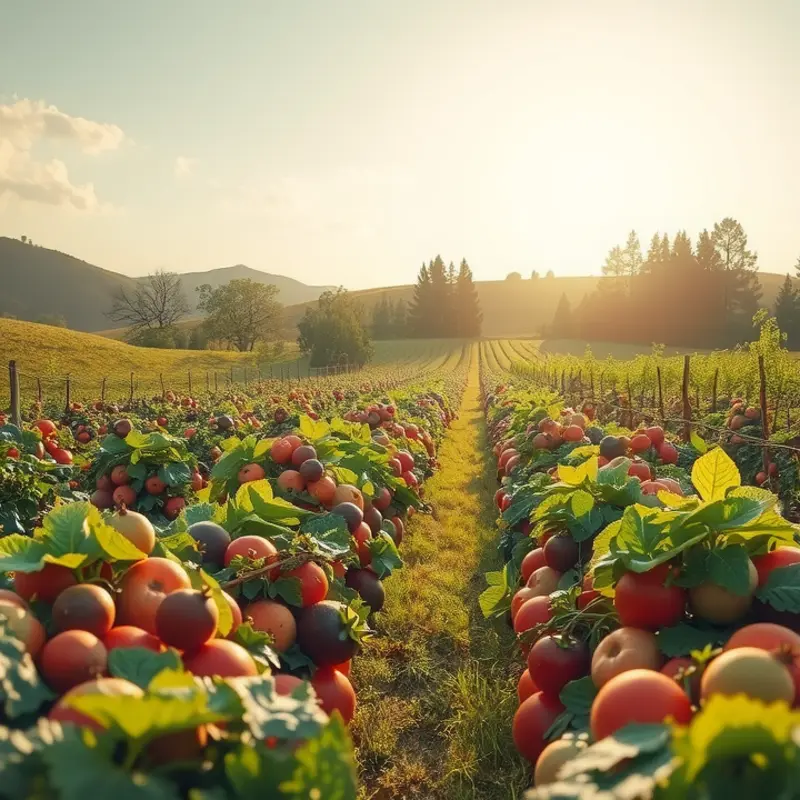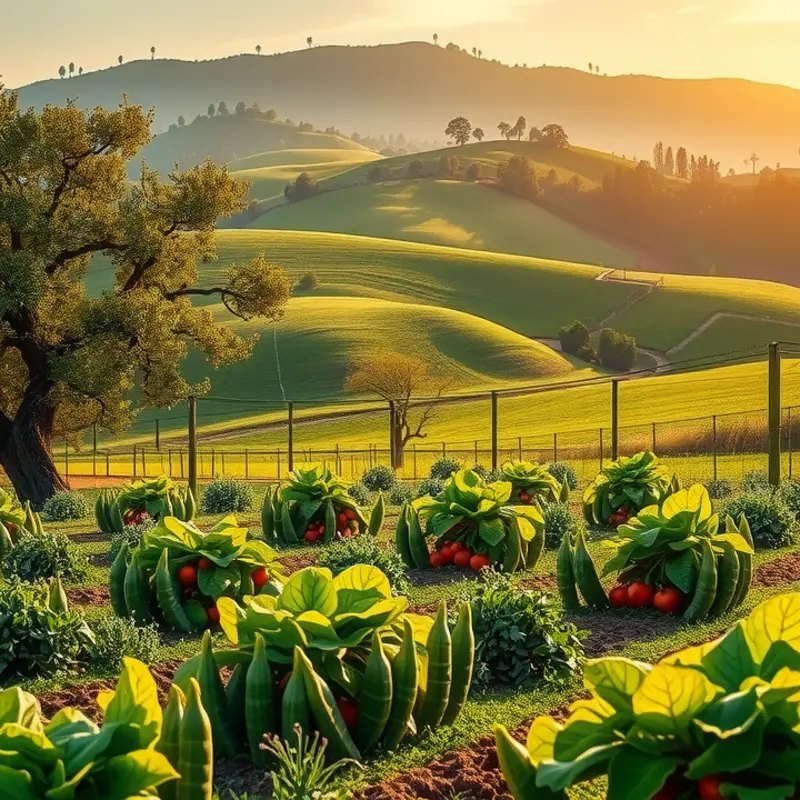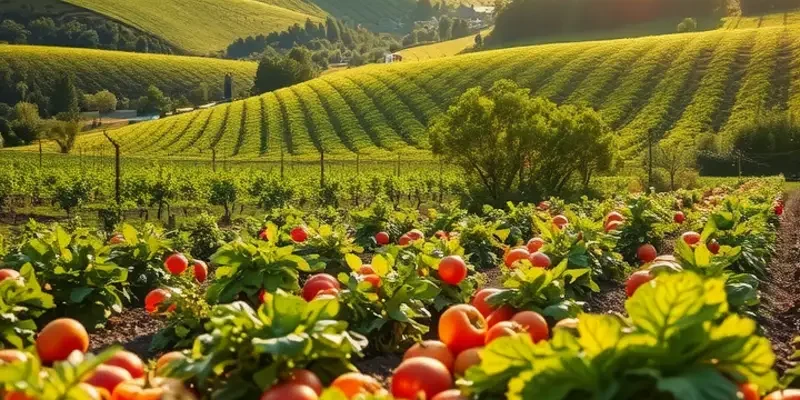Choosing ingredients that benefit both your health and the environment is essential in today’s world. Sustainable spices and herbs not only enhance your meals but also come from practices that support biodiversity and reduce carbon footprints. By integrating these eco-conscious choices, you can make a delicious impact in your kitchen—and beyond.
The Allure of Sustainable Spices

The realm of spices is as vast as it is enchanting, offering a sensory tapestry that transcends time and culture. At the heart of this captivating world are sustainable spices, which bring not only flavors but also harmony with nature. To embrace these spices is to embark on a culinary journey that nourishes both the palate and the planet.
The origins of sustainable spices lie in practices that respect the Earth. By choosing organic, fair trade, and regeneratively farmed spices, you support agricultural methods that prioritize soil health and biodiversity. Such practices avoid harmful chemicals, ensuring that the land can regenerate and sustain future crops. Regenerative farming, in particular, enriches the soil by incorporating crop rotation and polycultures, which help restore ecological balance.
The benefits of sustainable spices extend beyond environmental impact; they offer profound health advantages and elevated culinary experiences. Spices like turmeric, cinnamon, and cumin are celebrated not only for their robust flavors but also for their medicinal properties. Turmeric, revered for its anti-inflammatory qualities, adds a warm, earthy depth to dishes. Cinnamon regulates blood sugar levels and enriches the flavor profile with its sweet and spicy undertones. Cumin, with its distinctive nutty aroma, aids digestion and enhances savory creations.
Sourcing these spices sustainably requires mindfulness. Organic and fair trade certifications ensure that the spices you choose contribute to socially responsible practices, where farmers receive fair compensation and working conditions are humane. Moreover, focusing on local and seasonal herbs is a powerful way to engage with sustainability. By doing so, you reduce the carbon footprint associated with transportation and support local ecosystems that thrive on diversity.
For those eager to incorporate sustainable spices into their kitchen, numerous options are available. Farmers’ markets and specialty stores often carry a range of organic and fair trade spices. Online platforms also offer access to ethically sourced varieties. As you explore these avenues, remember that choices you make at the market level have far-reaching impacts on global agricultural practices.
Embracing sustainable spices is not merely an act of culinary enhancement but a commitment to fostering thriving ecosystems and resilient communities. By choosing to support responsible agriculture, you play a vital role in promoting practices that preserve our planet for future generations. With sustainable spices, your cooking becomes a vibrant expression of harmony with nature—each dish a celebration of both flavor and a mindful approach to our shared environment.
Herbs: Nature’s Gift for Sustainable Living

Sustainable cuisine offers an opportunity to connect with nature through flavorful herbs. Basil, oregano, and cilantro stand out for their eco-friendly profiles. These herbs elevate culinary experiences while supporting environmental health. Gardens and local farmers ensure these plants are readily available and sustainably sourced.
Growing your own herbs is a sustainable practice that reduces transportation-related carbon emissions. By cultivating basil, oregano, or cilantro at home, you reduce the need for long-distance transport, lowering your carbon footprint. A small windowsill herb garden can provide fresh flavors without the environmental costs of packaged herbs.
Begin by selecting herbs suited to your climate and available space. Basil thrives in sunlit areas, making it ideal for balcony gardens. Oregano and cilantro are versatile, growing well in both indoor pots and outdoor garden beds. Invest in organic soil, and use recycled containers for extra sustainability points.
Indoor Herb Garden Steps:
- Select a sunny spot: Herbs need at least six hours of sunlight daily.
- Choose suitable containers: Ensure pots have good drainage.
- Use quality soil: Organic, well-draining soil can enhance growth.
- Water wisely: Herbs prefer moist, but not waterlogged, soil.
- Prune regularly: Regular trimming encourages healthy growth.
Outdoor herb gardens require similar care. Allocate a designated bed or integrate herbs into existing vegetable plots for companion planting benefits. Basil, for instance, naturally deters pests while attracting beneficial insects.
The flavor boost of homegrown herbs is unparalleled. Basil’s sweet, peppery taste complements dishes like a refreshing Mediterranean Chickpea Salad. Cilantro’s citrusy notes enhance salsas and stews, providing a crisp, fresh flavor. Oregano, with its earthy undertones, adds depth to sauces and marinades.
If you’re seeking culinary inspiration, explore unique combinations like zucchini noodles with avocado pesto, where fresh basil could shine. This dish is not only flavorful but also aligns with low-impact, environmentally conscious eating.
By growing and using sustainable herbs, you create a deeper connection with your meals. Consider their journey from garden to table and reflect on the broader environmental implications. Cultivating herbs at home can spark awareness and appreciation for nature’s culinary gifts.
Enhance your eco-friendly cuisine with herbs, transforming meals into sustainable masterpieces that honor nature’s bounty. Engaging in such mindful practices encourages a holistic lifestyle that resonates beyond the kitchen.
Final words
Integrating sustainable spices and herbs into your cooking not only elevates your meals but is also a step towards cultivating a healthier planet. These choices support responsible farming practices that protect biodiversity and foster local communities. Beyond flavor, each sprinkle of spice and fresh herb in your dishes tells a story of the environment and the effort put into preserving it. Embrace these eco-friendly choices, and encourage friends and family to join you in this flavorful journey toward sustainability; together, we can make a significant difference through our daily decisions.








